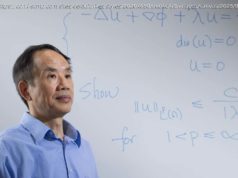Carrie Lam already highlighted the field as one where Hong Kong could make big strides
In a first for Hong Kong, Chinese University has launched a department of biomedical engineering, allowing students to apply for the undergraduate course from next year.
It becomes the first university in the city to have a specialised department in the subject, which the city’s leader earmarked as fertile ground for the city to invest in.
In July, Chief Executive Carrie Lam Cheng Yuet-ngor identified biomedical technology as one of the potential new drivers of the city’s economy, after President Xi Jinping warned that Hong Kong had lost ground in its traditional strengths .
Lam said back then that the city had the potential to become the region’s answer to Silicon Valley, by developing biomedical technology and artificial intelligence, as “five of its universities are among the world’s top 100, and two of them have excellent medical schools”.
On Wednesday, CUHK launched the new department, which will admit around 50 undergraduates annually from 2018.
The Sha Tin institution has offered biomedical engineering courses in its bachelor’s programme under the Faculty of Engineering since 2010, but has not had a specialised department for the subject.
“Students now might have to study lots of maths and programming in the first year at the faculty,” Professor Raymond Tong Kai-yu, chairman of the new department, said. “In the future they could also take biology and anatomy earlier.”
“It was not [ideal] to have students taking maths only in one year and too many courses from the medical faculty in the second year,” he added.
Each year there are about 500 students in the school’s engineering faculty. Around 40 to 60 of them choose to study biomedical engineering, Tong said.
An independent admission for the subject also means a different expectation for students, the chairman said.
“In the past we only [especially emphasised] maths when taking in students through the faculty’s broad-based arrangement,” Tong said. “But a biomedical engineer should also know other science subjects such as biology, chemistry and physics … as well as English.”
He said he expected the department to delve more into areas such as medical instruments and biomaterials, often used for tissue repair and replacement, with a more focused allocation of resources for the field.
As part of the launch on Wednesday, the university showcased some of the faculty’s research, including an exercise bike that could help train the muscles of patients affected by a stroke or spinal cord injury.
Ms Tam, one of the patients who had used the bike, said using the machine had helped her get stronger.
“My muscles could be built up again,” said Tam, who had a stroke in 2003. “Now I could walk with better strength on steep roads.”






